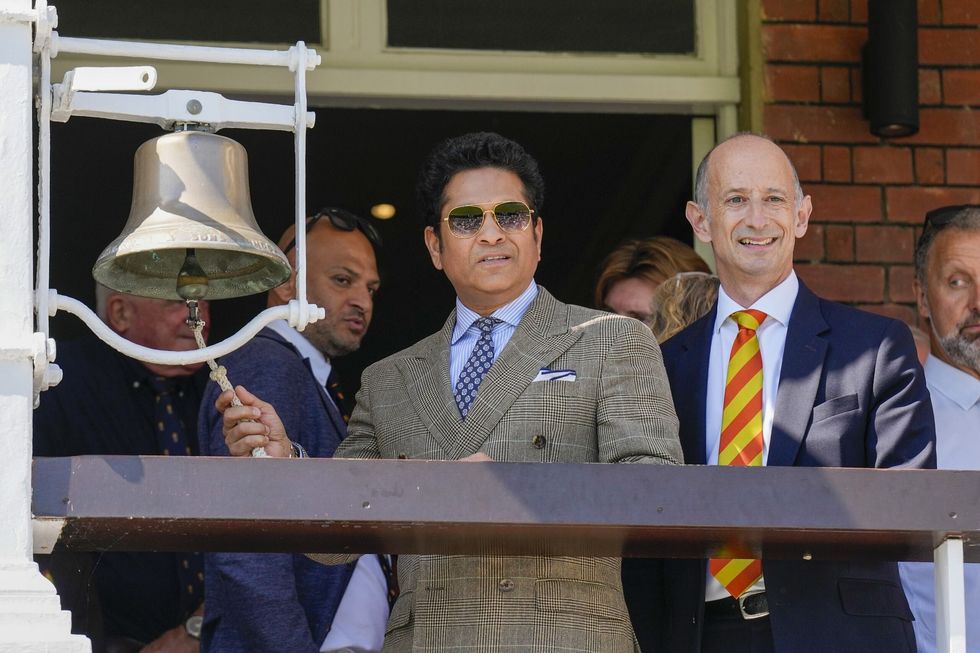by LAUREN CODLING
A JOB in the Foreign Office may be considered to only be available to those from an elite background, but an Asian diplomat has revealed how there are no barriers to joining one of the most prestigious offices in government.
Fouzia Younis is mentoring an aspiring BAME civil servant who took up a posting at the Foreign and Commonwealth Office (FCO) last October.
Samad Chowdhury was offered the chance to be guided by British diplomat Younis when he was a 17-year-old college student.
Since the duo connected, Younis has helped Chowdhury, now 22, navigate some of the pivotal career moments in his life. With her support, he successfully secured a place at Cambridge University in 2015. He graduated with a first-class degree in human, social and political sciences and last October, took the role of a parliamentary officer at the FCO.
The impact of having Younis as a mentor is not lost on Chowdhury, who is from a working-class background in east London.
“Having someone that you know, that you’re comfortable with, who is at that level in society… having a contact like (Younis) is pretty unheard of (in my social class),” he told Eastern Eye.
Younis met Chowdhury when he first visited the Foreign Office during a school trip. Seeing a woman from an ethnic minority background in a senior role in government was a shock to Chowdhury and his classmates.
“I was taken aback,” he admitted. “There is an ‘us and them’ feeling between east London and the government – they are two separate worlds.
“But Fouzia looked like us and had a similar vibe to us. It was refreshing.”
After the diplomat addressed Chowdhury’s class, she offered all the students an opportunity to be mentored by her.
Chowdhury decided to take Younis up on the offer. He was aware that she had given him a chance that he probably wouldn’t have got otherwise, coming from the kind of social-economic background that he did.
For instance, when Chowdhury attended Cambridge University, he found his experiences differed from other students from privileged backgrounds.
“I saw the work experiences they had had – it was all in established law firms and businesses, and it was due to the connections they had from family,” he recalled.
Originally from Newham, Chowdhury grew up in an overcrowded home with his family. There wasn’t much space in the house, meaning it was difficult to do any schoolwork. His family also did not have a high income – Chowdhury would sometimes go without lunch so he could afford to buy revision books, he admitted.
“I felt bad asking for more money from my family,” he said.
Conceding that he did not take his education seriously when he was in school, Chowdhury had a lightbulb moment during his final year at secondary school. He began to realise how much his parents had provided for him and his siblings.
“I got to a point where I thought, ‘how are we where we are?’” he said. “I started thinking about my parents who came here from Bangladesh and sacrificed a lot.
“They left [their home] for us – a very common story for people from east London. And I thought, ‘am I repaying them and doing enough?’ I owe them so much as I know I have a lot of privilege here.”
So he recognised the rare opportunity that Younis was offering. With her help, he became exposed to a professional world which people from his background did not typically engage with. The pair would occasionally meet at the Foreign Office, so that Chowdhury could meet her FCO colleagues.
As well as advice on interview prep for universities and discussing future career prospects, Chowdhury recognised that his confidence was boosted by Younis's support.
“It was so evident that she believed in me,” he said.
Talking about her experiences with Chowdhury, Younis said she was drawn to him as he reminded her of herself. Like her, he attended a state school and was the first person in his family to attend university.
“I could see that he was ambitious and intelligent. He just needed some guidance,” she told Eastern Eye.
When asked about her reasons for offering mentorship, the diplomat said she recognised she was in a position of privilege and was determined to use it for good.
“I needed to give something back,” Younis, originally from Stourbridge in the West Midlands, said.
The pair believe that the power of role models is vital. It is important, they said, that people can see someone like themselves reach the top and be successful. However, Younis stressed that having self-assurance was also significant.
“You have to have the confidence to be the first because, very often, we don’t have anyone in that senior position”, she said. “You have to ask yourself how you can manoeuvre yourself into that position and be the first.”
Seeing Chowdhury’s progression – from graduating from Cambridge with a first-class degree to securing a position at the FCO – has made Younis incredibly proud, she said. Witnessing Chowdhury’s growth, she admitted, still makes her emotional.
“When I talk about it, I become really teary,” she said. “Especially when you hear so much (negativity) in the news about young men in inner city London.”
Having worked for the FCO for 15 years and acting as the co-chair of the FCO’s BAME Network, she is arguably well-established in the field. Was she guided during her climb up the career ladder?
Although she did not benefit from a personal mentor, Younis credits her college tutors for encouraging her to succeed. And when she eventually joined the FCO, some colleagues “made a big difference to (her) career”.
“They knew my background – that my dad was a taxi driver, that I was the first out of my family to go to university – and they knew how difficult it was for someone from my background to get into an organisation (like the FCO),” she said.
“But they really believed in me and helped me get to where I am today.”
Now, Chowdhury has turned his hand to his own mentorship scheme. He has invited students from his old college to the FCO, in the hopes that he is able to offer them guidance, as Younis did for him.
“With the help of my FCO colleagues, I am hoping to assign mentors to mentees,” he explained. “Somebody (will be there) to give them advice and support (when) they don’t have that family member or friend to give them guidance.”
From his own experiences, Chowdhury believes there is still a perception that some social groups are unable to access careers in certain sectors. He also thinks there is a common myth that students from low economic areas lack aspiration.
"There is often too much in the way and it makes it difficult for (people),” he said, admitting that he could not think of a single friend hailing from a similar socio-economic background who did not face some form of identity-related barrier in achieving success.
“There are many external factors that stop people from doing what they want to do,” he added. “And we must recognise that the problem is structural.
“If you have structural disadvantages, then aspirations can only go so far,” he explained. “The best analogy for this is if you visualise a hill and imagine two people driving up that same hill. But one person has a Land Rover while the other has a Nissan Micra.
“You have different resources and materials, but there are structural advantages and disadvantages that people don’t talk about as much.”





 (Photo credit: PTI)
(Photo credit: PTI)










 Kendrick Lamar and SZA commands the stage at Villa Park during his explosive opening setInstagram/
Kendrick Lamar and SZA commands the stage at Villa Park during his explosive opening setInstagram/
